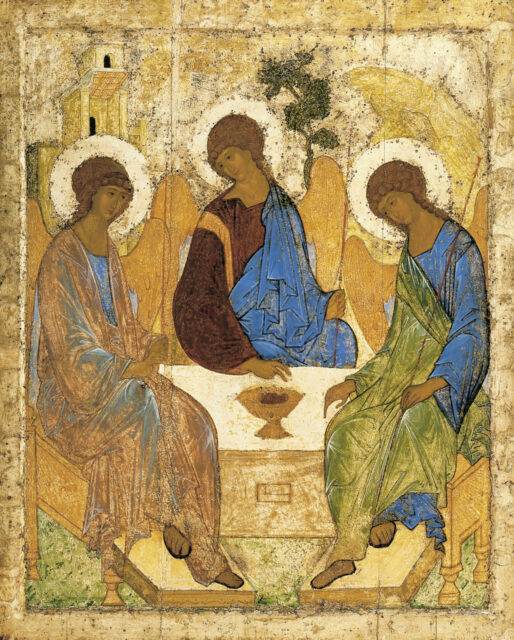(RNS) — Last evening in synagogue, as we were singing Shalom Aleichem, welcoming the angels of Shabbat, it occurred to me. …
Whether or not the angel sits at the top of a tree, and/or has wings, and/or wears a robe, and/or plays the harp, and/or wears a halo …
Let us remember: the word angel comes from the ancient Latin — and before that, Greek, word for “messenger,” which is itself a precise translation of the Hebrew word malach, which means a divine messenger. An emissary of the holy. A bundle of God’s energy that makes unscheduled and even sudden appearances in the world.
For us, as Jews, those angels, malachim, have a particular way of showing up on Shabbat. We welcome them.
For others in our world, this is also a night of watching and of waiting — no, not for Santa Claus — but, also, for angels messengers emissaries of God and holiness and hope. For our Christian friends, let this be a night and a season of angels
For my Christian friends, thank you for your love and support — back at you.
As I was saying those words, our congregation could hear the strains of “Silent Night” coming from the Christmas eve services of Unity Church, our tenant. We had offered them our sanctuary to use last night, while we prayed in the library.
As I read those words, accompanied by “Silent Night,” several thoughts flashed through my head, and my soul.
First, angels. If there is a theological Venn diagram that exists between Jews, Christians, and Muslims — not to mention other ancient, esoteric traditions — it is the presence of angels.
That is why my younger son is named Gabriel, born decades ago during a time of great hope for Middle East peace, bearing the name Gabriel as a testimony to that angel’s simultaneous presence in Jewish, Christian, and Muslim lore.
His name is not only his name. His name is a prayer.
Second — the melody of our tenant, Unity Church. Time was, and it was not that long ago, that a Christian melody wafting into a synagogue would have been deemed a threat — an attempted invasion on the part of a stronger religious culture, coming to colonize us.
That is no longer the case. It is not only the fact that we live in a remarkable open society. It is not only that intermarriage and conversion has pretty much guaranteed that a huge percentage of American Jews have gentile relatives.
It is also that Christians, Jews, and Muslims — all people of faith, actually — have come to understand that during these difficult times, we face a common …
Well, 20 years ago, the word would have been “threat,” but I have softened somewhat, so I find myself saying a common “challenge” — and that is how we import, inject, and enfuse the possibility of the sacred into an increasingly secular world.
This world cries out for hope. If religions are working well, then they will provide it.
Do not rely on the angels to provide it for you.
Bring it on yourselves.
Third, it occurs to me, on Shabbat, that Christmas is the closest thing that America has to a genuine Shabbat. Think of it: most stores are closed; people are home with their families; there is less traffic.
For one day, the commercial realm shuts down, or is put on the back burner, and that which is truly holy jumps into view.
For my Christian friends and readers, may this be the day when the Christ child is born — within you.






